Our Favorite Reads Highlighting ASD Representation
Books about autism play a crucial role in fostering understanding and empathy towards individuals on the autism spectrum disorder (ASD). Representations in literature can provide insight into the diverse experiences and perspectives of those living with ASD. While there are many valuable examples of books about autism for kids, there is also a variety of novels aimed at adults that showcase well-executed portrayals of ASD in modern literature.
Exploring the Spectrum Through Fiction
These fictional novels offer readers a window into the nuanced and complex lives of individuals with ASD, through narratives that are both engaging and enlightening.
“The Kiss Quotient” by Helen Hoang
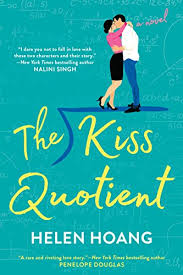 In this refreshing romance, Stella Lane, a woman with autism, enlists the help of a companion to help her navigate the complexities of dating and intimacy. Hoang, who is on the spectrum herself, crafts a story that challenges societal norms and expectations about love and relationships. The novel stands out for its honest depiction of autism, including the sensory sensitivities and social misunderstandings that Stella faces. This makes it a compelling read for anyone looking to understand ASD from a personal perspective. Hoang’s candid portrayal of Stella’s journey toward self-acceptance and love is both heartwarming and empowering.
In this refreshing romance, Stella Lane, a woman with autism, enlists the help of a companion to help her navigate the complexities of dating and intimacy. Hoang, who is on the spectrum herself, crafts a story that challenges societal norms and expectations about love and relationships. The novel stands out for its honest depiction of autism, including the sensory sensitivities and social misunderstandings that Stella faces. This makes it a compelling read for anyone looking to understand ASD from a personal perspective. Hoang’s candid portrayal of Stella’s journey toward self-acceptance and love is both heartwarming and empowering.
“The Rosie Project” by Graeme Simsion
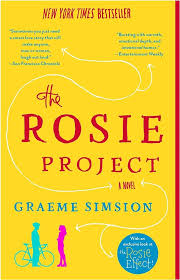 Don Tillman, a genetics professor with undiagnosed Asperger’s Syndrome, embarks on an unconventional quest to find love. His journey leads him to Rosie Jarman, who is his polar opposite. Through Don’s meticulously organized and logically driven world, Simsion provides a humorous yet poignant insight into the mind of autism. The book shines in its ability to present Don’s challenges and strengths in a manner that is relatable and affirming. While it doesn’t shy away from the difficulties faced by those on the spectrum, it also celebrates the unique perspectives and talents they bring to the table. Readers will particularly enjoy the moments of self-discovery and the dynamic between Don and Rosie. Their relationship continually highlights the importance of acceptance and understanding.
Don Tillman, a genetics professor with undiagnosed Asperger’s Syndrome, embarks on an unconventional quest to find love. His journey leads him to Rosie Jarman, who is his polar opposite. Through Don’s meticulously organized and logically driven world, Simsion provides a humorous yet poignant insight into the mind of autism. The book shines in its ability to present Don’s challenges and strengths in a manner that is relatable and affirming. While it doesn’t shy away from the difficulties faced by those on the spectrum, it also celebrates the unique perspectives and talents they bring to the table. Readers will particularly enjoy the moments of self-discovery and the dynamic between Don and Rosie. Their relationship continually highlights the importance of acceptance and understanding.
Both of these novels, while fictional, offer realistic and diverse perspectives on ASD, emphasizing that every individual’s experience is unique. They invite readers to explore the world through the eyes of characters on the autism spectrum, fostering understanding and empathy for their journeys. Through engaging storytelling and well-crafted characters, these books contribute significantly to autism representation in modern literature. Both are essential reads for anyone seeking to appreciate the full spectrum of human diversity.
Non-Fiction Narratives That Illuminate the ASD Experience
In the realm of non-fiction, books that illuminate the ASD experience provide insights directly from the perspective of individuals on the spectrum, or through comprehensive research. These works are not only educational but also deeply moving. Each offers readers a chance to connect with the lived experiences of individuals with autism and to consider the broader implications of neurodiversity in society.
“NeuroTribes: The Legacy of Autism and the Future of Neurodiversity” by Steve Silberman
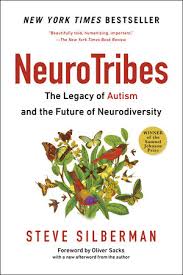 Steve Silberman’s seminal work traces the history of autism from its first identification, to the neurodiversity movement, and more. He paints a broad and inclusive picture of the autism experience throughout history. Silberman combines meticulous research with compelling narratives, making “NeuroTribes” a must-read for anyone interested in the evolution of society’s understanding of autism. The book highlights how shifting perceptions of neurodiversity can transform our culture and institutions to be more inclusive and accommodating.
Steve Silberman’s seminal work traces the history of autism from its first identification, to the neurodiversity movement, and more. He paints a broad and inclusive picture of the autism experience throughout history. Silberman combines meticulous research with compelling narratives, making “NeuroTribes” a must-read for anyone interested in the evolution of society’s understanding of autism. The book highlights how shifting perceptions of neurodiversity can transform our culture and institutions to be more inclusive and accommodating.
“The Reason I Jump: The Inner Voice of a Thirteen-Year-Old Boy with Autism” by Naoki Higashida, translated by KA Yoshida and David Mitchell
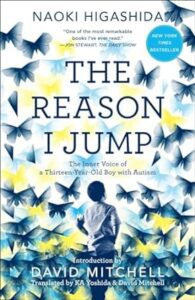 This remarkable memoir provides a rare glimpse into the mind of a non-verbal autistic teenager. Naoki Higashida, with the help of translators KA Yoshida and David Mitchell, shares his unique perceptions, feelings, and challenges. His experiences offer readers a profound insight into the experience of growing up with autism. Higashida’s eloquent descriptions of his sensory experiences, frustrations, and joys challenge many of the common misconceptions about autism, making “The Reason I Jump” a powerful advocate for understanding and empathy.
This remarkable memoir provides a rare glimpse into the mind of a non-verbal autistic teenager. Naoki Higashida, with the help of translators KA Yoshida and David Mitchell, shares his unique perceptions, feelings, and challenges. His experiences offer readers a profound insight into the experience of growing up with autism. Higashida’s eloquent descriptions of his sensory experiences, frustrations, and joys challenge many of the common misconceptions about autism, making “The Reason I Jump” a powerful advocate for understanding and empathy.
“Uniquely Human: A Different Way of Seeing Autism” by Barry Prizant
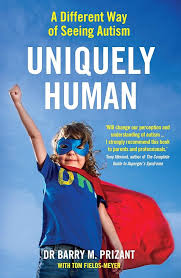 Barry Prizant offers a compassionate and insightful look into autism as a diagnosis. He advocates for a shift from viewing autism as a disorder to understanding it as a different way of being. Prizant’s approach is rooted in empathy and respect, drawing on his extensive experience as a clinician and consultant in the field of ASD. “Uniquely Human” emphasizes the importance of recognizing the strengths and abilities of individuals with autism, rather than focusing solely on their challenges. Through engaging stories and practical advice, Prizant encourages a more inclusive approach to supporting individuals with autism.
Barry Prizant offers a compassionate and insightful look into autism as a diagnosis. He advocates for a shift from viewing autism as a disorder to understanding it as a different way of being. Prizant’s approach is rooted in empathy and respect, drawing on his extensive experience as a clinician and consultant in the field of ASD. “Uniquely Human” emphasizes the importance of recognizing the strengths and abilities of individuals with autism, rather than focusing solely on their challenges. Through engaging stories and practical advice, Prizant encourages a more inclusive approach to supporting individuals with autism.
These non-fiction titles not only educate, but also inspire a deeper understanding and appreciation of the autism experience for anyone looking to broaden their knowledge of ASD and embrace the full spectrum of human diversity.
Ensuring Diversity in ASD Representation
In the literary landscape, diversity in ASD representation is the key to capturing the rich spectrum of autism experiences across different backgrounds and identities.
“On the Edge of Gone” by Corinne Duyvis
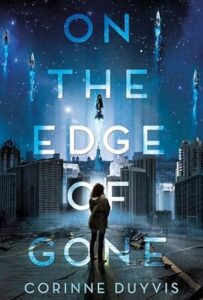 This novel offers a compelling look at a biracial protagonist’s struggle for survival in a post-apocalyptic scenario. Duyvis, who has autism herself, provides an authentic and nuanced portrayal of resilience and determination, making this novel an important addition to the conversation about diversity within autism narratives.
This novel offers a compelling look at a biracial protagonist’s struggle for survival in a post-apocalyptic scenario. Duyvis, who has autism herself, provides an authentic and nuanced portrayal of resilience and determination, making this novel an important addition to the conversation about diversity within autism narratives.
“Queens of Geek” by Jen Wilde
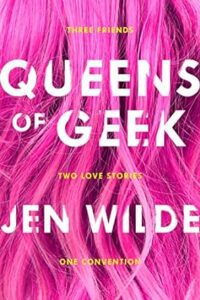 Another standout title, this novel stars a girl with autism navigating the complexities of friendship, fame, and romance at a fan convention. Wilde’s story is a celebration of diversity, embracing both neurodiversity and LGBTQ+ themes. She offers readers a heartfelt glimpse into the joys and challenges faced by those on the spectrum.
Another standout title, this novel stars a girl with autism navigating the complexities of friendship, fame, and romance at a fan convention. Wilde’s story is a celebration of diversity, embracing both neurodiversity and LGBTQ+ themes. She offers readers a heartfelt glimpse into the joys and challenges faced by those on the spectrum.
Each of these books enrich our understanding of autism and highlight the importance of inclusive representation. These authors ensure that readers from all walks of life can see themselves reflected in these characters and stories. By reading varied narratives, we are reminded of the vast and vibrant spectrum of autism experiences, as well as the need for a more inclusive literary world that honors all voices.
